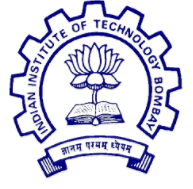FAQs
What does ReFINE do?
ReFINE is a consortium that brings together academics from many different institutions to conduct research on the environmental impacts of shale gas development. ReFINE uses its funding to finance research projects that result in peer-reviewed academic literature that is freely accessible to the public.
 |
 |
 |
 |
 |
 |
ReFINE has provided funding to over 20 research projects examining the potential environmental risks of fracking such as induced seismicity, the possibility of water contamination and the risk of well integrity failure. There are also several social science projects investigating legislation, legal issues, and public attitudes towards fracking.
Who funds ReFINE?
ReFINE receives funding from a variety of sources. We are currently largely funded by Ineos, with contributions from other organisations such as NERC (UK government), Environment Agency, and the EU. We have previously been funded also by Shell, Chevron, Total, and GDF Suez and Centrica.
Is ReFINE independent?
As ReFINE is partially funded by industry, extensive measures are taken to ensure that the research conducted is rigorous and independent.
- Industry funders have no control over what research is conducted or published. An Independent Science Board of leading international academics provides ethical oversight for the project; determining which research projects are funded and providing advice and resolutions to any ethical issues that arise.
- All ReFINE research publications are subject to academic peer review to ensure they are accurate, rigourous, and free from bias.
- Staff invloved in ReFINE, including those leading research projects, are required to declare circmstances (such as funding, past employment etc.) that could potentially compromise their impartiality.
How do you decide what to research?
Research areas were chosen based on discussions with public, policy makers and academics during the early stages of the project. These discussions highlighted areas of public concern, as wells as areas that were lacking in peer-reviewed academic research. This led to six broad areas of research being identified.
Individual research projects are chosen based on applications from researchers in academic institutions. ReFINE periodically opens up a call for research proposals. Any researcher based at a University is free to submit an application, provided that the research focuses on the potential impacts of shale gas development. These proposals are then reviewed by the Independent Science Board, who make an impartial decision on which projects should receive funding.
Why do we need fracking research?
The UK government is encouraging shale gas development in England, however the issue is divisive with much opposition both locally and nationally. On an international scale, the USA is exploiting large shale gas reserves, while countries such as France and Germany have imposed moratoria and bans on the fracking process.
There are many contentious issues surrounding the exploitation of shale gas, yet there is a relative lack of independent, rigourous, and peer-reviewed literature on which to base the debate. ReFINE aims to conduct independent (neither pro- nor anti-shale) research to provide reliable information so that the public, industry and policy makers can make informed decisions on shale gas development.
Is the research having an impact?
ReFINE research has been extensively covered in the media, and is frequently referenced in government and regulator reports. Our research on the extent of hydraulic fractures has led directly to UK environmental protection legislation (Infrastructure Act 2015) that prohibits fracking within 1000m of the land surface.
Our research papers are widely downloaded and frequently top the "Most Downloaded" lists in their respective journals.







